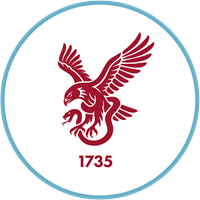The history curriculum aims to foster an enjoyment of history through a challenging, engaging, and diverse curriculum; it aims to inspire students to become well rounded and passionate historians who think critically about the world they inhabit. To effectively interact with the modern world an understanding of history is essential. In their study of history, students will consider a range of perspectives and develop the ability to make balanced arguments and well sustained judgements, considering the significance of key events and individuals. Through studying a range of periods and peoples, students will become more empathetic and open minded. Through a knowledge rich curriculum students will gain an in depth understanding of a range of events and issues throughout history, building chronological understanding, and build their historical literacy and conceptual understanding. Students will develop their understanding of historical concepts, continuity, change, cause, consequence, similarity, and difference. They will also develop the skills needed to use and critically evaluate sources and interpretations, both in terms of content and reliability. Students will learn to ask thoughtful questions and develop independent, analytical thinking and a passion for learning. Throughout KS3 there are opportunities to build a foundation of skills and knowledge to prepare them for their continued study at GCSE. The curriculum also builds on skills and knowledge gained at KS2 and will prepare students for further study of History post 16.
KS3
History is allocated 3 hours a fortnight at Key Stage 3 and is taught in mixed ability groups. The topics selected cover a range of significant events and time periods, as well as historical skills. The Key Stage 3 curriculum seeks to provide the necessary skills and knowledge to enable successful transition to GCSE History.
| Autumn Term | Spring Term | Summer Term | |
| Yr 7 |
|
|
|
| Yr 8 |
|
|
|
| Yr 9 |
|
|
|
KS4
History is allocated to 5 hours a fortnight at Key Stage 4 and is taught in mixed ability groups. The subject is the most popular choice at GCSE level and we follow the AQA GCSE History specification.
The units studied are as follows:
- Germany 1918-1939 Democracy and Dictatorship
- Conflict and Tension in the interwar period
- Health and the People 1000CE-Present Day
- Norman England 1066-1100 to include a site study
During Year 10 pupils usually have the opportunity to visit Krakow in Poland to deepen their understanding of the impact of Nazi rule on the Jewish population of Europe. We also usually visit a local site connected to the Norman England site study.
The GCSE specification and course provides a well-rounded range of skills and knowledge to allow progression onto A Level and beyond, and many of our students opt to continue with their History studies.

